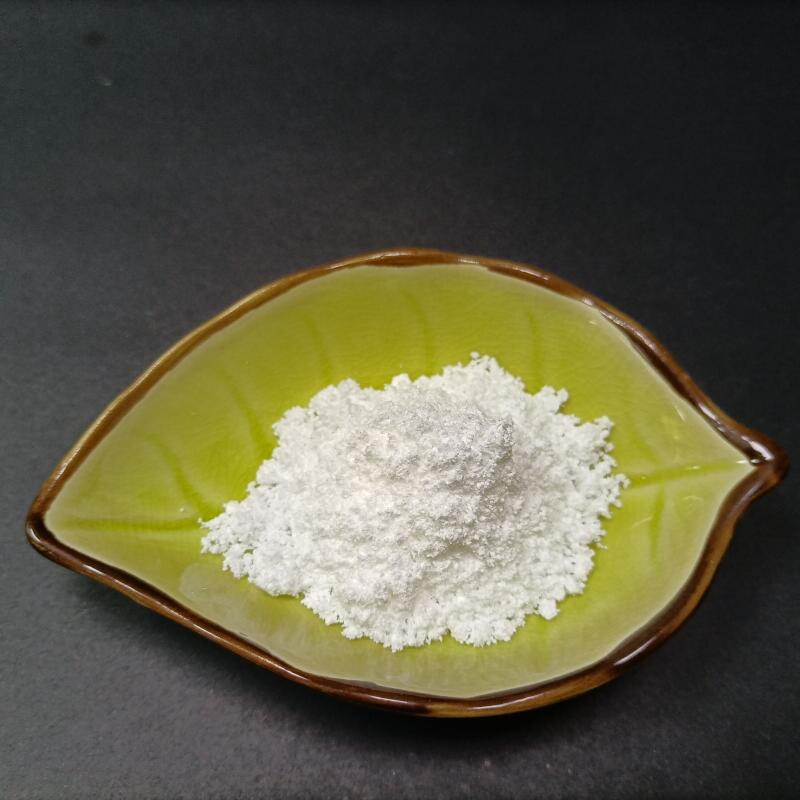-
Categories
-
Pharmaceutical Intermediates
-
Active Pharmaceutical Ingredients
-
Food Additives
- Industrial Coatings
- Agrochemicals
- Dyes and Pigments
- Surfactant
- Flavors and Fragrances
- Chemical Reagents
- Catalyst and Auxiliary
- Natural Products
- Inorganic Chemistry
-
Organic Chemistry
-
Biochemical Engineering
- Analytical Chemistry
-
Cosmetic Ingredient
- Water Treatment Chemical
-
Pharmaceutical Intermediates
Promotion
ECHEMI Mall
Wholesale
Weekly Price
Exhibition
News
-
Trade Service
This article summarizes the recently released consensus of relevant guidelines in the field of infection at home and abroad, for everyone to check and download!
2022 WHO Guidelines: Diagnosis, prevention and management of cryptococcosis in adults, adolescents and children living with HIV
2022 Japan Guide: Management of Clostridium difficile infection
2022 Expert Advice: Prevention and Management of Candida Auris transmission
2022 IDSA Guidelines: Treatment of Antimicrobial Resistant Gram-Negative Bacterial Infections (V2.
0)
Expert consensus on the application of vaccines for common infectious diseases in the elderly in the community
Expert consensus on the clinical application of laboratory diagnostic methods for invasive mycosis
2022 IATDMCT Position Statement: Best Practices for Drug Monitoring for Vancomycin Therapy
2022 ESCMID Quick Guide: Assessment and management of long-term symptoms of COVID-19
Expert consensus on the rational use of glucocorticoids in the treatment of tuberculosis
2022 JSC/JSTDM Clinical Practice Guidelines: Pharmacological Monitoring of Teicoplanin
Expert consensus on emergency diagnosis and treatment of acute respiratory viral infection in adults
Sepsis is currently defined as a dysfunction of a life-threatening organ caused by a dysfunctional host response to infection
Download link:
https://guide.
Recommended Reading:
Empirical antimicrobial therapy for patients with sepsis, SWAB guideline recommendations at a glance!
Pseudomonas aeruginosa (PA) is one of the most common pathogenic bacteria for refractory lower respiratory tract infections, making treatment more difficult
Download link:
https://guide.
Recommended Reading:
Antibacterial drugs with anti-Pseudomonas aeruginosa activity, common dosages and adverse reactions see here!
In order to further guide all localities to do a good job in the prevention and control of the monkeypox epidemic, standardize the epidemiological investigation of monkeypox, the determination and management of contacts, laboratory testing, etc.
Download link:
https://guide.
Recommended Reading:
National Health Commission Releases Guidelines for the Diagnosis and Treatment of MonkeyPox (2022 Edition)
2022 WHO Guidelines: Diagnosis, prevention and management of cryptococcosis in adults, adolescents and children living with HIV
One
of the most common opportunistic infections in people with advanced HIV infection with cryptococcosis.
In June 2022, the World Health Organization (WHO) published guidelines for the diagnosis, prevention and management of cryptococcosis in adults, adolescents and children living with HIV, which provide guidance
on the diagnosis, prevention and management of cryptococcosis in adults, adolescents and children with HIV infection.
Download link:
https://guide.
medlive.
cn/guideline/26200
Recommended Reading:
2022 WHO Guidelines: Diagnosis, prevention and management of cryptococcosis in adults, adolescents, and children living with HIV
2022 Japan Guide: Management of Clostridium difficile infection
Clostridium difficile (CD) is the most common anaerobic pathogen causing hospital- or healthcare-related infections
.
The clinical manifestations of Clostridium difficile infection (CDI) are predominantly diarrhea and pseudomembranous colitis, and patient outcomes range from asymptomatic bacterial colonization to severe diarrhea, or further progression to toxic megacolon, intestinal perforation, septic shock, and even death
.
The Japanese CDI Management Guidelines propose a clear CDI diagnosis and treatment process
.
Download link:
https://guide.
medlive.
cn/guideline/26051
Recommended Reading:
For the diagnosis and treatment of Clostridium infection, see the latest guidelines in Japan!
2022 Expert Advice: Prevention and Management of Candida Auris transmission
Candida auris is a novel multidrug-resistant fungus that causes invasive infections
primarily in immunocompromised hospitalized patients.
Since it was first reported in 2009, the bacterium has swept across 44 countries on 6 continents, making it a serious threat
to health care.
Recently, experts from Germany published the "2022 Expert Advice: Prevention and Management of Candida Auris Transmission", which provides a series of guidance and suggestions
for the prevention and management of Candida auris transmission.
Download link:
https://guide.
medlive.
cn/guideline/26257
Recommended Reading:
From the latest expert recommendations to see the identification and clinical treatment of Candida auris infection
2022 IDSA Guidelines: Treatment of Antimicrobial Resistant Gram-Negative Bacterial Infections (V2.
0)
Carbapenem-resistant Acinetobacter baumannii (CRAB) infection poses a major challenge to medical institutions, and the main reasons why CRAB infection is difficult to treat are: 1) CRAB can often be regained from respiratory specimens and wounds; 2) Once Acinetobacter baumann exhibits carbapenem resistance, resistance usually develops against most other antibiotics that are expected to be active against wild-type Acinetobacter baumannii, resulting in few treatment options remaining; 3) There is no explicit standard antibiotic regimen for CRAB infection to assess the effectiveness
of various treatment options.
The American Society of Infectious Diseases (IDSA) recently published guidelines for the treatment of antimicrobial-resistant Gram-negative bacterial infections, version 2.
0, which provide guidance on the treatment of CRAB infections
.
Download link:
https://guide.
medlive.
cn/guideline/26050
Recommended Reading:
Treatment of carbapenem-resistant Acinetobacter baumann infections, see IDSA guidelines recommended!
Expert consensus on the application of vaccines for common infectious diseases in the elderly in the community
Infectious disease (infectious disease) is a general term for diseases caused by pathogenic microorganisms, which have a high incidence and high case fatality rate in the elderly population, which seriously affect the quality of life of the elderly and cause a heavy economic burden, and have become one
of the major public health problems in the world.
Vaccination is a measure that specifically protects susceptible populations, improves the level of specific immunity in vaccinated populations, and reduces the risk
of infectious diseases and related complications.
Vaccination can also slow the progression of chronic diseases in older adults by preventing infections, reducing the risk
of adverse outcomes from complications of chronic diseases.
Regarding the vaccination of the elderly in the community against recombinant herpes zoster vaccine (RZV), let's look at the latest expert consensus recommendations
.
Download link:
https://guide.
medlive.
cn/guideline/25027
Recommended Reading:
Community elderly vaccinated against shingles, see expert consensus recommendations!
Expert consensus on the clinical application of laboratory diagnostic methods for invasive mycosis
The prevalence and mortality rate of invasive fungal diseases continue to rise, seriously threatening the health of patients, and early and accurate diagnosis is the key
to improving patient outcomes.
The Expert Consensus on the Clinical Application of Laboratory Diagnostic Methods for Invasive Mycoses introduces and makes suggestions on the application population, test requirements, interpretation of results and clinical significance of invasive mycoses diagnostic methods
.
Download link:
https://guide.
medlive.
cn/guideline/25182
Recommended Reading:
Clinical application of invasive mycopathy microbiological examination and histopathological examination, expert consensus recommends see here!
2022 IATDMCT Position Statement: Best Practices for Drug Monitoring for Vancomycin Therapy
When treated clinically with vancomycin, individualized dosing methods based on therapeutic drug monitoring (TDM) data can improve patient outcomes
compared with fixed or empiric methods of administration.
A growing body of evidence supports the use of an area under the curve (AUC24) to guide TDM's approach to guiding dosing decisions
in patients receiving vancomycin therapy in excess of 48.
Recently, the International Society for Therapeutic Drug Monitoring and Clinical Toxicity (IATDMCT) published a Best Practice Statement for Vancomycin Therapeutic Drug Monitoring, highlighting the pre-, post-analysis, and analysis processes of vancomycin TDM and its effects on
AUC valley concentrations.
Download link:
https://guide.
medlive.
cn/guideline/24933
Recommended Reading:
Best Practices for Drug Monitoring for Vancomycin Therapy: IATDMCT Recommendations at a Glance!
2022 ESCMID Quick Guide: Assessment and management of long-term symptoms of COVID-19
With more than 300 million people recovering from COVID-19 worldwide, the public health implications of long-term COVID will be far-reaching
.
Long-term symptoms of COVID-19 are an umbrella term that refers to the signs and symptoms that persist after SARS-CoV-2 infection
.
The most common symptoms include fatigue, breathing difficulties, cognitive impairment, and symptoms of various pains (chest pain, headache, muscle pain
).
In February 2022, the European Society of Clinical Microbiology and Infectious Diseases (ESCMID) published quick guidelines
for the assessment and management of long-term symptoms of COVID-19.
Download link:
https://guide.
medlive.
cn/guideline/25163
Recommended Reading:
Assessment of long-term symptoms of COVID-19, ESCMID guidelines recommend a list!
Expert consensus on the rational use of glucocorticoids in the treatment of tuberculosis
Glucocorticoids (GCs) have anti-inflammatory, anti-allergic, anti-bacterial endotoxins and immunosuppressive pharmacological effects, which can alleviate the immune damage
caused by the body's allergic reaction to Mycobacterium tuberculosis.
However, GCs can lead to adverse reactions such as dysbacteriosis, peptic ulcer, and osteoporosis while rapidly controlling the disease
.
There is an irrational clinical
use of GCs to assist in the treatment of tuberculosis.
The Expert Consensus on the Rational Application of Glucocorticoids in tuberculosis treatment mainly puts forward 22 recommendations for the adjuvant treatment of tuberculosis by GCs, in order to better guide the standardized application
of GCs.
Download link:
https://guide.
medlive.
cn/guideline/24870
Recommended Reading:
Glucocorticoids adjuvant therapy for tuberculosis, see the latest expert consensus!
2022 JSC/JSTDM Clinical Practice Guidelines: Pharmacological Monitoring of Teicoplanin
Ticoplanin is a glycopeptide antibiotic that has a good effect on methicillin-resistant infections caused by Staphylococcus aureus (MRSA) and has been widely used in the treatment
of PEOPLEA-infected patients due to the low risk of adverse effects of this drug.
Recently, the Japanese Chemotherapy Society (JSC) and the Japanese Society for Therapeutic Drug Monitoring (JSTDM) jointly published guidelines for the monitoring of levoplanin in order to better manage patients
receiving levoplanin.
Download link:
https://guide.
medlive.
cn/guideline/24926
Recommended Reading:
Drug monitoring for the treatment of coronanin, a list of recommendations recommended by Japanese guidelines!
Expert consensus on emergency diagnosis and treatment of acute respiratory viral infection in adults
Acute respiratory tract infections are divided into upper respiratory tract infections and lower respiratory tract infections, and the pathogenic microorganisms that cause acute respiratory infections include viruses, bacteria, fungi, mycoplasma and chlamydia
.
The Emergency Medicine Branch of the Chinese Medical Association organized experts in emergency medicine and other related fields to formulate the "Expert Consensus on emergency treatment of acute respiratory viral infection in adults"
based on evidence-based medical evidence and clinical real-world results.
Download link:
https://guide.
medlive.
cn/guideline/24794
Recommended Reading:
Adult acute respiratory viral infection, expert consensus recommendation at a glance!







